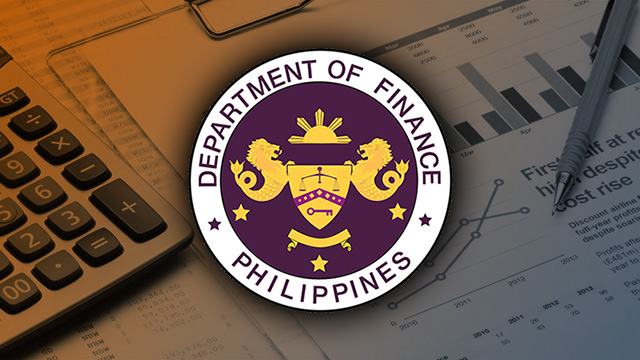To begin with, the process to put in place good rules takes so long. The new sin tax law (Republic Act No. 10351) has corrected the fundamental weaknesses of the old law. And it took 15 years to obtain the key reforms.
The old law was passed in 1997 as part of the Comprehensive Tax Reform Program. The new law was enacted in 2012. It consists of major reforms, namely the imposition of much higher tax rates, the adoption of a unitary tax for tobacco products, the removal of the price classification freeze which fixed tax rates of legacy brands for cigarettes based on their 1996 prices, the automatic adjustment of tax rates to inflation, and the earmarking of the bulk of incremental revenues for universal health care.
In the case of BBL, it seeks to supplant the failed Autonomous Region in Muslim Mindanao (ARMM), which became a law in 2001. Although the ARMM had the good intention of enabling Moro self-governance, it turned out to be insufficient in overcoming the many political and economic problems that have historically plagued the Bangsamoro. The BBL thus seeks to strengthen the institutions for the effective governance of the Bangsamoro, in terms of a participatory and transparent political structure, greater fiscal autonomy, better control and management of natural resources, and a more equitable sharing of wealth between the national government and the autonomous region.
But whether a BBL that contains the above features will pass remains to be seen. What needs to be stressed is to have a law that incorporates the essential reforms. We can expect a BBL to pass, but it should not be one that incapacitates self-governance.
Even the House bill that is up for second reading remains controversial from the perspective of the Bangsamoro. In a story written by Carolyn Arguillas for MindaNews, Mohagher Iqbal, the chief peace negotiator for the Moro Islamic Liberation Front, said that the House bill is “50% okay qualitatively.”
A most contentious issue pertains to the dilution of Bangsamoro jurisdiction over natural resources. The Comprehensive Agreement on the Bangsamoro provides for a joint exercise of power between the national government and the Bangsamoro entity in granting rights, privileges and concessions over the exploration, development and use of fossil fuels and uranium. The House bill however discards this and replaces it with a provision that excludes the Bangsamoro from having the authority, power and right to the control and supervision over the exploration, use, development and protection of strategic minerals such as uranium, petroleum and other fossil fuels, mineral oils, and all sources of potential energy. The consuelo de bobo is the Bangsamoro will be consulted on this matter.
In this light, the experience from the passage of the sin tax law in 2012 offers some insights into the BBL advocacy.
It is interesting and amusing that the most vociferous opponents of the BBL in Congress are the same legislators who did not support the sin tax reforms.
In the Senate, those who oppose a genuine BBL or those who want to cripple the BBL include Alan Peter Cayetano, Bongbong Marcos, Francis Escudero, Ralph Recto, and Tito Sotto. They are the same senators who did not want the sin tax reforms passed in 2012.
The sin tax was ratified in the Senate by a margin of one vote, which shocked its main sponsor, Franklin Drilon. Marcos, Escudero, Recto and Sotto were among the nine senators who rejected the reforms. Alan Peter Cayetano was conspicuously absent during the vote. This was surprising, considering that his sister, Senator Pia Cayetano, was a champion of the sin tax reform.
Part of the tactics of the tobacco industry was to dissuade some senators from voting. Four senators did not show up for the ratification: Alan Peter Cayetano, TG Guingona, Manuel Villar, and Loren Legarda. Thus, the vote in the Senate was won by a whisker.
To be sure, some senators who were supportive of the sin tax are against the BBL on constitutional grounds. I can think of Miriam Defensor Santiago. But then Senator Santiago has always been different.
Nonetheless, one has to distinguish between those who oppose the BBL on strictly legal issues and those who use any excuse, including the legal ones, to scuttle the BBL as a way of pandering to hysteria, bigotry, or deep anti-Moro biases.
Arguably, a most important lesson that the BBL advocates can learn from the sin tax is to be clear about the bottom line. What are the essential features that have to be retained, as distinguished from elements that can be a subject of a just compromise?
In 1997, the objective of the sin tax reform was to shift the tobacco excise tax from an ad valorem tax to a specific tax. Under the system of the ad valorem tax, a tobacco manufacturer could artificially depress the gate price of the product so it could be taxed less. The system abetted tax evasion. The shift to the specific tax (which is a fixed amount based on unit) was successful.
But the law likewise contained a killer amendment, which was the price classification freeze (resulting in very low tax rates for the legacy brands). In addition, Congress did not include a mechanism to adjust the fixed tax rate to inflation. Thus, the reform went to naught.
We hope the BBL will not suffer the same fate that happened in the first attempt to reform the sin tax.
Filomeno S. Sta. Ana III coordinates the Action for Economic Reforms.
www.aer.ph
source: Businessworld
